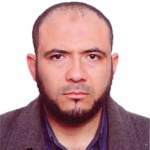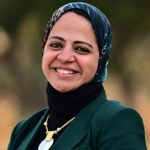The Micro-Level Analysis of the Impact of Violent Conflict on Lives and Livelihoods in the MENA Region
The MENA region is characterized by several interrelated socio-economic trends including rapidly growing populations, on average high degrees of (youth) unemployment, strong gender differences in terms of labor market participation, and political radicalization. The countries in the region often have weak and/or authoritarian central government institutions, declining public revenues from natural resources except in a few very resource-rich countries, and climate change impacts on agriculture and water management. Above all, insecurity and violent conflict of various intensity shape societies in several MENA countries directly or indirectly, via conflicts in neighboring countries. The conflicts differ in cause, nature, duration and intensity and hence have diverse and changing impacts on people. More importantly, these impacts may in turn compound the other aforementioned trends by, possibly, affecting population growth, unemployment, gender norm differentiation, political radicalization, weakening state institutions and increased needs for but reduced abilities to fund public services and infrastructures.
Despite these fundamental and interlinked societal challenges, the MENA region is comparatively under-researched in terms of applied micro-level analysis, both by economists and other social scientists. In particular, it is not very well understood how some of these security and socio-economic trends shape each other. For a given conflict, there are a multitude of topics that can be addressed, ranging from demography, social issues, health, education, labor markets and migration via agriculture, product markets and trade to social norms, attitudes and political behavior and, of course, to the role and the effectiveness of policies and interventions.
Against this backdrop, ERF launched a call for papers under the title of the workshop. Several subthemes were identified, such as the impact of conflict, insecurity and fragility on people and how conflict impacts “victims” across these many domains, and the impact of women on peace-building. The review process led to the acceptance of eight proposals.
ERF acknowledges the generous financial contribution of the Ford Foundation (FF).

Tilman Brück
Founder and Director of ISDC - International Security and Development Center in Berlin

Eleftherios Giovanis
Associate Professor of Economics, Department of International Trade and Business, Izmir Bakircay University

Oznur Ozdamar
Full Professor of Economics, Izmir University of Bakırçay

Hüseyin Ikizler
Assistant Professor, OSTIM Technical University

Hatem Jemmali
Associate Professor, University of Manouba

Wael Moussa
Research Scientist, Education Policy and Data Center/Research and Evaluation, FHI 360

Alexandra Irani
Project Research Manager, Applied Economics and Development Research Group, the American University of Beirut (AUB)

Nisreen Salti
Associate Professor, Department of Economics, American University of Beirut

Rima Al-Mokdad
Research Assistant, Department of Agriculture, Faculty of Agricultural and Food Sciences, American University of Beirut

Zeina Jamaluddine
Center for Research on Population and Health, Faculty of Health Sciences, American University of Beirut

Jad Chaaban
Associate Professor of Economics, Doha Institute for Graduate Studies

Hala Ghattas
Associate Research Professor, American University of Beirut

Belal Fallah
Assistant Professor, Economics at the Department of Economics and Financial Sciences, Palestine Polytechnic University

Reham Rizk
Director of the Egypt Impact Lab, J-PAL MENA

Colette Salemi
Research Assistant at the University of Minnesota

Georges Naufal
Associate Research Scientist, Public Policy Research Institute, Texas A&M University

Michael Malcolm
Associate Professor of economics at West Chester University

Vidya Diwakar
Researcher in the Chronic Poverty Advisory NetworK

Ahmed Elsayed
Associate Professor, Economics Department and Executive Director of J-PAL MENA, American University in CairoAUC

Emre Yuksel
PhD candidate, Hacettepe University

Hüsniye Burçin Ikizler
Ministry of Health, Turkey

Sameh Hallaq
Assistant Professor, Al-Quds University
Impact of Violent Conflict on Lives and Livelihoods in the MENA Region
The MENA region is characterized by several interrelated socio-economic trends including rapidly growing populations, on average high degrees... Read More
Oct 26, 2020
Terrorism, Mental Health, Risky Behaviors and Human Capital: Evidence from Iraq
This paper investigates the causal impact of terrorism on mental health, risky behaviors and human capital accumulation. Using... Read More
The Impact of Syrian Conflict and The Refugee Crisis on Labour Market Outcomes of Host Countries
The civil war in Syria, which started in March of 2011, has led to a massive influx of... Read More
The Impact of the Large-Scale Migration on the Unmet Healthcare Needs of the Nativeborn Population in A Host Country: Evidence…
As of December 2018, Turkey is home to 3.6 million Syrian refugees under temporary protection status. The negative... Read More
Children of War: Conflict and Child Welfare in Iraq
What are the impacts of violent conflict on child health and nutrition? In this paper, we examine conflict... Read More
Effect of Witnessing House Raids and Arrests on Child Behavior: Evidence From Israeli Palestinian Conflict
This study utilizes self-reported data on exposure to conflict, collected in the West Bank, to examine the exposure... Read More
Are Syrians Refugees Earn Less than Natives and Other Migrants in Jordan: Evidence from Distributional Analysis of Wage Differentials
This paper examines the wage differentials between Syrian refugees and native-born and nonrefugee migrant workers using a nationally... Read More
Inequality of Opportunities in Access to Basic Services Among Children in Host Communities in Jordan and Lebanon: A Comparative Analysis
This paper examines the level of inequality of opportunity among children in host communities in Jordan and Lebanon... Read More
Violent Conflict and Vaccinations: Evidence from Iraq
Using a generalized difference-in-differences approach, we find that children residing in high conflict areas in Iraq are more... Read More
The Impact of Cash Transfers on Syrian Refugee Children in Lebanon
This paper was commissioned and funded by the Economic Research Forum. The paper builds on an impact evaluation... Read More


